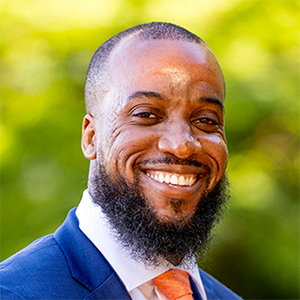If you’ve felt overwhelmed, overworked, underpaid or undervalued at your job, that is no accident. A chaotic everyday life — during the pandemic and even before — is a fundamental reality for most Americans.
How can we possibly manage a work-life balance with all that is going on in our daily lives? Why does it all seem so impossible?
Answer: Because maybe it is impossible.
Could it be that a work-life balance is an intentional mirage that has been placed out of our reach? Could it be that a work-life balance is another quota or goal that is placed in our lives to make us feel less complete and never enough? Could it be that a work-life balance is simply unattainable, reserved for only the privileged few?
For so many, rest seems like a difficult ask during a pandemic. How can we rest while losing jobs and family members and at the same time grappling with the reality of a new normal? Nonetheless, pastors long for rest — and need rest.
Self-care is a conscious practice of physical, mental and emotional health. “All you need is a plan to take care of yourself” sounds simple enough. The Hebrew Bible constantly reminds us to rest and to keep a Sabbath, yet that has become profoundly difficult.
During the pandemic, we have doubled down on preaching, teaching, proclaiming and articulating the importance of practicing self-care and rest. However, it often feels as though that’s not actually enough. Why is it not working? Are we doing something wrong?
Answer: I don’t think we’re the problem.
As an African American multivocational pastor, I have been exposed to transformational and amazing multivocational pastors both in my hometown of Youngstown, Ohio, and now in Boston, Massachusetts.
It is possible for us to be continually off balance in our daily lives and still lead well. For many pastors, and especially multivocational pastors, this is the position we find ourselves forced into.
I have seen whole communities saved and transformed because of the visionary leadership of pastors. Pastors are powerful, but this very simple task of self-care and rest is a struggle for ministry leaders across denominations. Our leaders are perpetually tired.
Multivocational pastoring is a growing trend across all mainline Protestant denominations. African American, Latin and immigrant congregations have long embraced the realities, challenges and beautiful possibilities that emerge with multivocational pastoring. It’s often tiring, but the results can be transformative.
So maybe we need different questions. What if our work is so undervalued that we are forced into overwork? Instead of berating ourselves for not being able to fit in rest and self-care to our already busy schedules, we need to see how wrongly our labor is valued.
In the COVID-19 pandemic, we have witnessed grotesque labor exploitation of our essential workers, those who have saved our lives and our economy.
Beautiful Black, Latinx, immigrant and female laborers make up the greatest share of our essential workers in the United States. However, our culture of capitalism has taken advantage of their labor and love, asking them to sacrifice their bodies, their families and even their lives without fair compensation in return.
We live in a culture of labor exploitation, and pastors are no exception. Even when you have given your all, you are asked to give more, and even when you have no more to give, you are asked to give even more.
The pastoral calling into ministry is not exempt from the exploitation of labor that happens in other service-oriented and people-facing professions in the United States. The multivocational pastor is in the same boat as our precious and invaluable laborers that keep our country afloat.
Simply promoting important and valuable individual practices of self-care and rest for pastors is not enough to change a culture of intentional labor exploitation.
Self-care and rest are important, but now more than ever we need healing. Healing suggests that we engage in a revolutionary change of values.
We need a culture in which we value our waitresses, grocery store clerks, Uber drivers and janitors as much as we value our lawyers, bankers and CEOs.
As long as our essential workers are exploited, the pastors and leaders who pray for our children, serve us communion, perform our marriages and comfort us in the transition of our loved ones will be exploited too.














